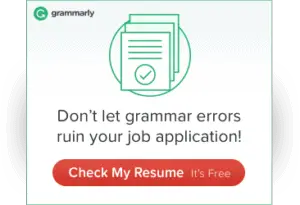The short answer to how to prepare for IELTS in 2 days:
- Do a complete IELTS test so you understand the format.
- Do it under timed conditions so you know how fast you need to work.
- Read up on IELTS test techniques and strategies, they will make more sense once you have done a practice test under timed conditions.
- Complete another full test using these techniques.
- Get some feedback on your writing and speaking to fix basic errors.
- Get some good nights sleep and eat well and stay hydrated.
- Relax, it’s just a test. Do your best, that is all you can do.
“It’s not about how bad you want it, it’s about how hard you are willing to work for it. You can do a lot in 2 days!”
Former IELTS Examiner – Tim James
Check Out The Fast Track Option In My Full Course And Start Today!
The detailed answer to how to prepare for IELTS in 2 days:
So, you booked your IELTS test a few weeks ago but forgot all about it, or you didn’t forget, but you just haven’t had time to prepare and study for it properly.
Now, there are only 2 days left for you to prepare for the IELTS test and you want to know how to prepare for IELTS in 2 days.
Good news: you are in the right place!
Bad news: 2 days is not long so you need to focus on exam technique more than anything.
Of course, I highly recommend that you prepare months in advance, you might want to follow my course here, however, this is not always possible so here are my 12 top tips for smashing the IELTS test in just 2 days. Here they are:
Reading:
- You’d better makes sure you read the instruction rubric carefully and do exactly what it says. If says write no more than three words then you must not write four ore more because you will get no marks.
- Do not sit and try and read the entire article carefully before you answer the questions. Instead use skimming and scanning skills to locate where the answer is likely to be before reading that paragraph carefully (watch this video I made about how to do this here if you are not sure what I mean – skimming and scanning explained).
- Watch out for synonyms. Questions will often ask a question using one particular word but the answer will not necessarily use that same word. For example, the question may ask ‘How old was George?’, and the article may say ‘George had reached the age of 78 before he passed away’. As you can see the second sentence contains the answer but not the key word ‘old’. Although this is a simple example it is the same principle for more complex sentences. In this way the test is rather like a vocabulary test.
Writing:
- Give your essay a structure! If you do nothing else, start with a general introduction paraphrasing the question. Next move on to two/three body paragraphs which start with a topic sentence and develop their points through further examples and explanations. And, of course, never miss off a conclusion – it is essential that you include one to ‘round off’ the essay and complete the format of a typical essay which is what the examiners are looking for. I cover essay structure in great detail here.
- Keep it simple! You do not need to impress the examiner with new or original ideas. They are not interested in how creative you are, they are only interested in how well you can use the language. This means you should stop worrying about thinking up clever ideas and instead choose a simple point to make and explain it clearly.
- Check your work. It is really important to go back and proof read your work. You will lose marks for incorrect spelling, punctuation and grammar so it is definitely worth going back and making these types of corrections. In fact it can increase your band score by whole a band on its own!
Listening:
- Listen and write. You are only going to hear the recording once so you need to be aware that you need to do two things at once – listen and write, or read and listen. Failure to do this will often mean a student will fall behind the recording and get lost. You can change answers later so jot down whatever you think is useful and go back and correct later if you need to. All the skills and techniques you need to improve your band score are covered here: IELTS listening overview.
- Pre-read the questions as the instructions are being read out for each part of the test. This means you will already be ahead of the recording and importantly once you have read the questions you will know what type of answers you are listening for. In fact, it is really useful to try and predict the answers even before the recording has begun. This has the effect of drawing your focus to what word types you are likely to be listening for. Are you listening for a name, number, verb, adjective, and so on.
- Warm your ears up! Yes, that’s right before you enter the listening test if at all possible listen to a TED talk or any other recording of native speakers, if you can find one where they are speaking quickly then when you go into the test your ideas will be used to something fast and your recording may appear slower and easier to understand.
Speaking:
- Expand on your answers. This is true for all parts of the tests, expand on your answers. One of the easiest ways of doing this is to be as specific as possible. Instead of just saying: ‘I am from Shanghai’, say I am from a northern suburb of Shanghai about two hours’ drive from the downtown area. By doing this you are able to show off a greater range of vocabulary quickly and easily and show the examiner that you can speak at length on your own.
- Just talk. In part 2 of the speaking test you are supplied with a topic card containing bullet points to talk about. The key here is to understand that you can actually talk about anything. You do not have to stick to those bullet points alone. You can say anything so long as it is related to the topic. You are not being marked on how well you answer those bullet points, you are being graded on how well you can communicate. Here is a detailed explanation of a really effective technique I teach my students for part 2 of the speaking test.
- If you are not sure about something then ask! If you need to clarify what a word means then you are free to do so. In fact, it is another opportunity for you to show how naturally you are able to communicate. This is especially the case when you have one minute to prepare for part 2. If there is any vocabulary you are not sure about then you can definitely ask the examiner. And finally, you do not have to think up original ideas for the examiner, you just need to assess your language not your creativity, so don’t worry about not being interesting, the examiner does not care if you make him/her laugh or not.
TOP TIP: Take an online practise test here to get a really good idea of what you need to do in the test and get ready for the format. This would be the most beneficial strategy, investing a little extra now could prevent you from having to take the test again later!
Finally, remember the IELTS test is not perfect, plenty of studies, like this one, show us how difficult it can be for examiners to correctly assign band scores so don’t get too discouraged if you do not get the score you need at the first go, with persistence you can do it!
WANT TO FAST TRACK YOUR IELTS IMPROVEMENT?
My full course does have a Fast Track option so in 2 days you could definitely make a significant increase to your band score.
Check Out The Fast Track Option In My Full Course And Start Today!
Recommended IELTS Study Tools
Thank you for reading this article. I always get lots of questions about how else to get a better band score quickly. So, this is what I recommend:
Complete IELTS Course: Of course, my full course ‘INCREASE YOUR IELTS‘ covers everything you need to need to know to pass IELTS, including practice questions, model answers, grammar work, strategies for every possible reading, writing and listening question type, as well as a complete speaking course too, check it out here.
IELTS Essay and Speaking Feedback: To complete full mock tests and get feedback from IELTS examiners on your IELTS essays or speaking tasks then visit: IELTS Feedback and Mock Tests, here.
Improve your grammar fast by using the Grammarly suggestions to improve your writing. Every IELTS students should have this free grammar improving tool.
Improve all-round English skill with EnglishClass101.com. If you have failed IELTS more than once then you probably need to improve your general level of English. Use the free online lessons and vocabulary building tools here and start improving today! HIGHLY RECOMMENDED!






